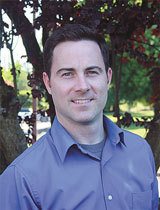I did not vote for President-elect Donald Trump.
But I completely understand why many people did and I get that, despite what we have heard from the left during this election, it was not solely about racism, sexism, xenophobia, homophobia and Islamaphobia.
Yes, those factions exist and the fact that they have been given voice in a Trump administration that is terrifying and insulting to decent people everywhere (and why I could not under any circumstances cast my vote Donald Trump). But even Secretary Clinton knew that basket of deplorables was only half of Trump supporters.
And it was the other half that beat her.
Here’s what she said about them: “that other basket of people are people who feel that the government has let them down, the economy has let them down, nobody cares about them, nobody worries about what happens to their lives and their futures, and they’re just desperate for change. It doesn’t really even matter where it comes from. They don’t buy everything he says, but he seems to hold out some hope that their lives will be different. They won’t wake up and see their jobs disappear, lose a kid to heroin, feel like they’re in a dead-end. Those are people we have to understand and empathize with as well.”
She was not wrong. Those were the voters that beat her. I know. I am from the places she is talking about and while I live in a city now, my friend group, especially on social media, still contains many, many people from where I grew up and the vast majority of them voted for Trump. And they didn’t do it because they are racists but because Donald Trump was the first candidate in a long time that seemed to acknowledge that perhaps those voters might have legitimate concerns and issues.
For decades, the Democrats have been preaching to minorities and other groups that traditionally don’t vote in as large numbers the concept of identity politics – elect people who look like you if you want your issues addressed.
This year, it bit them on the butt when white rural voters did just that.
Sure, it’s ironic that they chose a New York City real estate mogul who was born a millionaire, but the truth is, he spoke to those voters and addressed their issues.
More than any other election in recent memory – even more so than 2004 – this year’s election laid bare the real division in this country. It is not racial and it is not necessarily class (though that plays in) and it is not even education levels (though that also plays in).
This year, the major split was rural/urban. And what is most interesting about that is that it is the split in American politics. It was the first split, the one that divided the Founding Fathers more than any and almost sank the Constitution before it was signed. It was the Big State representatives and Small State representatives battling over how to best allocate representation in the government and how to best choose a president.
In the end, the great compromise created a bi-cameral legislature, with one house based entirely on population and the other giving each state, no matter its size, the same representation.
Designed by the representative from Connecticut as compromise between plans from New Jersey and Virginia, the idea was to protect the needs, concerns and issues of smaller or more rural states from being completely overwhelmed by the sheer numbers of voters in larger, more urban areas.
It was this compromise that gave us the Electoral College, which gives every state the number of votes for president equal to its representation in Congress. California, for example, gets 55 electors while small states such as Wyoming or Delaware only get three (those two senators and a single representative from the population-based House). Again, the idea behind the college is to make sure that rural areas like Wyoming (population 584,000) does not have their entire voice canceled out by the City of Seattle (population 684,000).
We are, after all, still a republic of sovereign states.
This year, as Hillary Clinton currently leads the popular vote but lags way behind in electors, the college functioned exactly as designed. Clinton’s base of voters clusters around the cities, where she absolutely dominated.
However, rural voters did not see her as someone who would address their concerns and instead turned out in droves for her opponent, outnumbering their urban counterparts in states with major cities like Pennsylvania and Michigan and gathering enough rural states together to tilt the teeter-totter away from New York and California.
The question remains as to whether a President Trump will be able to deliver on his promises to these voters, but that doesn’t really matter for the purposes of this discussion. He heard their concerns and responded to them, she did not. He treated their issues like real things the government should be addressing, she did not.
And despite winning more votes from the folks in the cities where she concentrated, her tendency to ignore the concerns of those voters (who, ironically, carried her husband into the White House 24 years ago) cost her the presidency. Let that be a lesson to the left. A civics lesson, in fact.
Because this year, it worked exactly as the Founding Fathers drew it up.



